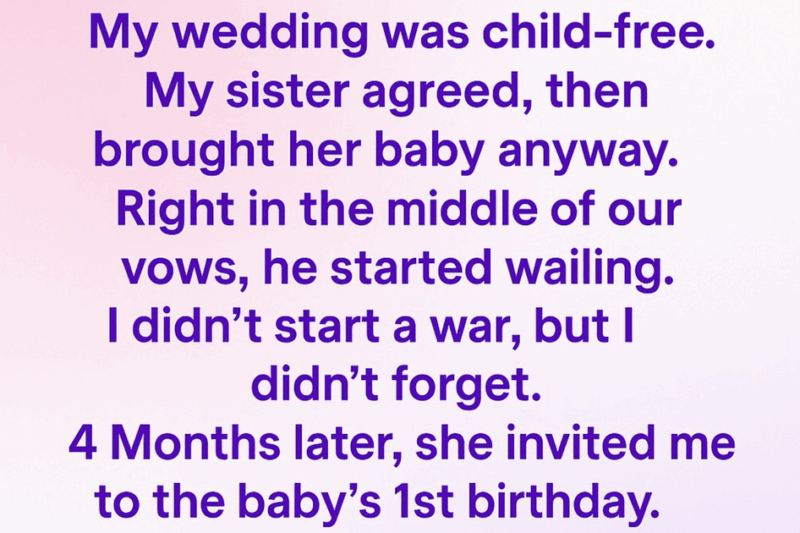We secured an affordable lease because of the elderly woman living next door. She created disturbances at 2 a.m. and tapped on doors. A new tenant arrived, and we cautioned him about her. A year later, he remained there, inexplicably. When she passed away, we explored her home and were stunned to discover he was her son.
Yes, it sounds like a scene from an odd film, doesn’t it? But it’s not what you might assume. No spirits. No chilling terror. Instead, it’s something far stranger, wrapped in its own subtle, poignant way.
It began two summers ago when Arun, my partner, and I stumbled upon a small duplex priced well below the usual rates. At first, we suspected it was a hoax. A two-bedroom home with a decent kitchen and a small backyard garden for $800 a month in a neighborhood where even a rundown studio cost $1,200.
There was, of course, a reason for the low price.
The landlord, Mr. Bhandari, was upfront: “You’ll live next to Miss Evelyn. She’s elderly. A bit peculiar. She makes noise at night.”
She did far more than that. During our first week, we heard her shifting furniture at 2 a.m., as if reorganizing her entire living space. Some nights, she’d knock on our door, murmuring words we couldn’t decipher. Once, we saw her speaking to a garden gnome for a full ten minutes. Loudly.
I tried to be compassionate initially. I brought her homemade cookies and greeted her warmly by her mailbox. She didn’t seem threatening, only… adrift. But the lack of sleep took its toll. Arun nearly lost his patience one night when she knocked at 3 a.m., asking if we’d seen her cat. She didn’t own one.
We began advising others: “Don’t rent here unless you have earplugs and unshakable patience.” When the unit on Evelyn’s other side became available, a man in his mid-30s moved in—quiet, lean, and reserved.
We never learned his name.
He carried the demeanor of someone who had experienced much and preferred silence about it. We warned him about Evelyn, and he offered a nod, as if already aware. A simple, “Thanks. I’ll handle it.”
We assumed he’d leave within a month.
Yet he stayed.
No grievances, no disturbances, nothing. Only the occasional nod if we met in the parking lot. Sometimes, late at night, I’d glance out our kitchen window and see a sliver of light beneath his curtains.
Evelyn seemed quieter after his arrival, too. Fewer knocks, fewer sudden outbursts. We wondered if he somehow soothed her.
Then, one morning about a year later, her mailbox remained untouched. The next day, too. By the third day, her porch light had glowed for 72 hours without pause.
We contacted the landlord.
Paramedics arrived, knocked, and eventually forced their way in.
Miss Evelyn had passed away in her recliner, peacefully it seemed. A book rested in her lap, a cup of tea, long cold, beside her.
I didn’t weep. I hardly knew her. But a strange weight settled in my chest, as if something significant had slipped away unnoticed.
Mr. Bhandari allowed us to enter her home with him to sort through her belongings. I offered to help, unsure why—perhaps guilt, perhaps curiosity.
Her home was unexpectedly neat. It smelled of lavender. Old newspapers were stacked precisely. Tea tins were arranged alphabetically. Her life was modest but orderly.
Then I noticed something peculiar.
Photographs.
Not displayed on walls, as you might expect, but tucked into drawers and shoeboxes. Hundreds of them. Always the same two people.
Miss Evelyn, younger. And a boy, perhaps ten or eleven in the earlier images. Dark hair, calm eyes. As he grew older in the photos, I noticed something striking.
He looked exactly like the man next door.
Same nose, same scar above his eyebrow. The only difference was the passage of time.
But that didn’t add up.
I showed Arun. He sifted through a stack, brow furrowed. “Hold on—this guy’s been around for decades? He’d be in his fifties now.”
“No. Thirty-five, maybe forty at most.”
The photos covered twenty years.
Every birthday. Every Christmas. Every backyard gathering.
Then they stopped. Around 2006. After that, only images of Evelyn. Alone.
I dug deeper, searching through her bills, old letters, anything that might clarify.
That’s when I found the envelope, hidden in a manila folder labeled “Legal – Keep Safe.”
Inside was a birth certificate.
Name: Desmond Ilari.
Mother: Evelyn Ilari.
Father: Unknown.
Date of Birth: March 3, 1989.
My stomach churned.
The man next door wasn’t a stranger.
He was her son.
And he’d never told us.
I felt… betrayed, perhaps? All those times we spoke of her as a nuisance, and he stood there, silent, as if unconnected.
But the strangest part?
When I knocked on his door that evening, he was gone.
Completely gone. Furniture cleared out. Lights off. Curtains removed. No forwarding address left behind.
I called Mr. Bhandari. He was clueless. Desmond had paid rent in cash, month by month. Never requested repairs, never caused issues.
I couldn’t sleep that night.
My mind kept circling one question: Why pretend to be a stranger to your own mother?
I found the answer by chance.
A week later, a letter arrived for Evelyn. I opened it. I know it’s questionable, but curiosity had overtaken me.
It was from a woman named Lys, written in careful cursive. Its words struck me deeply.
“Desmond visited me. After twenty years. He said he forgave me. I don’t deserve it. I wish Evelyn could have known he returned. She never stopped blaming herself. I’m sorry for everything.”
I read it five times.
Desmond had been gone for twenty years. And just before Evelyn’s death, he came back.
Not as her son.
As a neighbor.
As a shadow in his own story.
Over the next few weeks, I pieced it together.
Desmond had left home at sixteen. Evelyn had struggled—single mother, mental health challenges, perhaps more. There were hints of an incident at school, but no clear details. He’d left and stayed away.
Until last year.
He returned and moved in next door.
Not to reconnect. Not to reveal himself.
To watch over her.
Silently. Unseen.
He paid her rent. Took out her trash when she forgot. Left meals at her door when she wouldn’t eat. Spoke to her through the wall, sometimes as a stranger.
He never told her who he was.
Never gave her that closure.
At first, I resented him for it.
But then… I didn’t.
The more I reflected, the more I understood: Perhaps that was his way of forgiving her. On his terms.
Maybe he wasn’t ready for her apology.
Or maybe she wasn’t ready to offer it.
Yet he stayed. After all those years. Until her final day.
That matters.
A month after her passing, a package arrived at our doorstep. No sender’s address. Only our names, handwritten.
Inside was a small wooden box. And a note.
“In case someone remembers her.”
The box held a silver ring, a pressed flower, and one of the old photos: Evelyn laughing, Desmond as a boy on her back.
On the back of the photo, a single line in uneven blue ink:
“She tried. So did I.”
That broke me.
We framed the photo and placed it in our hallway.
Not because we knew them well.
But because sometimes the people we struggle most to forget are the ones who loved us in the most intricate ways.
Sometimes love isn’t grand or flawless or cinematic.
Sometimes it’s simply being there. Quietly. Every day. Even when no one acknowledges it.
I still think of Desmond.
Where he went. Who he became.
I hope he’s found peace, sleeping soundly at last.
If you’re reading this, perhaps you have someone like Evelyn in your life. Complicated. Difficult to love. Impossibly tangled.
Don’t wait too long to be there.
Even if it’s only next door.
If this story touched you, feel free to share it. You never know who might need the nudge. ❤️




